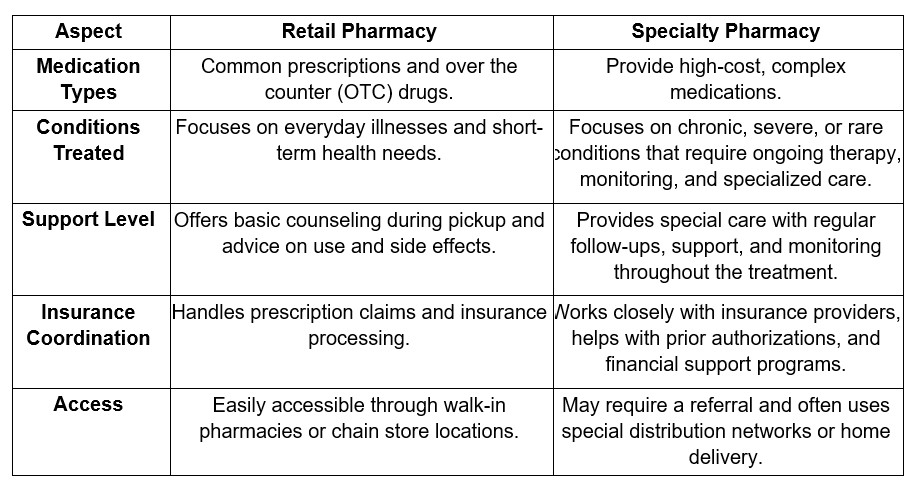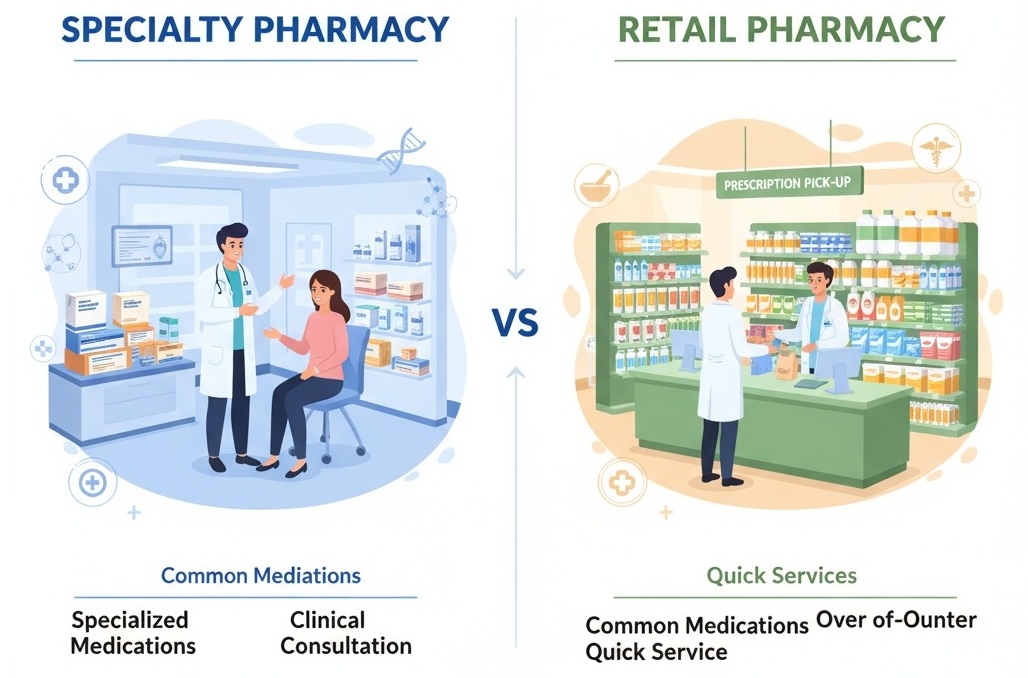For many people, getting a prescription filled is a part of their everyday life. However, for patients with rare or complex conditions who need special medications, you might find that they aren’t available at your usual pharmacy. In such cases, specialty pharmacy services are designed to help.
Choosing the right pharmacy is important. It affects not only how quickly you receive your medication, but also the support you get throughout your treatment. So, let’s understand which pharmacy to choose based on your health needs.
What Is a Specialty Pharmacy?
Specialty pharmacy is a licensed pharmacy that provides medications to people who have complex, rare, or long-term conditions. They provide medications that are not usually available at regular retail pharmacies.
These medicines, known as specialty medications, are often expensive and may need:
● careful storage
● special instructions, or
● extra support from healthcare professionals
That’s why specialty pharmacies work closely with the patients to make sure that they understand how to take their medications.
What Is a Retail Pharmacy?
A retail pharmacy is a type of licensed pharmacy that you find in grocery stores, drugstores, or local shops. These pharmacies provide everyday medicines for common health needs, such as antibiotics, diabetes medicine, or allergy relief.
They sell over-the-counter medications and may offer basic health services like vaccinations. At these pharmacies, you can simply walk in, drop off your prescription, and pick up your medications, usually on the same day.
What is the Difference Between a Retail Pharmacy and a Specialty Pharmacy?
Both retail and specialty pharmacies are designed to provide services based on the different health needs of the patients. That’s why it is important for you to understand the difference between the two pharmacies. Let’s look at the table below to know it:

What Should Patients Consider When Choosing a Pharmacy Type?
When it comes to picking a pharmacy, there are a few things that you should keep in mind to make sure you get the care that fits you best. Here are some key points to think about:
● What condition are you treating? If your medicine is for a common health problem, a retail pharmacy is usually enough. But if you have a rare or ongoing condition, specialty drug services might be better suited.
● Does your medicine need special care? Some medicines need to be stored a certain way or come with detailed instructions. Specialty pharmacies are set up to handle these needs.
● Do you want extra support? Some people like having a pharmacist or nurse, and they can call with questions or for advice. Specialty pharmacies often offer more personal support.
● Do you need help with insurance or costs? If your medication is expensive or needs special approval, a specialty pharmacy can often help with paperwork or finding financial support.
Conclusion
In the end, choosing the right pharmacy depends on your health needs. If you need everyday prescriptions and over-the-counter medications, then a retail pharmacy is good for you. But if you’ve a chronic or rare condition, then specialty pharmacies are a better option.
If you’re not sure which pharmacy to use, ask your doctor or pharmacist. They can help you make the best choice for your treatment.
